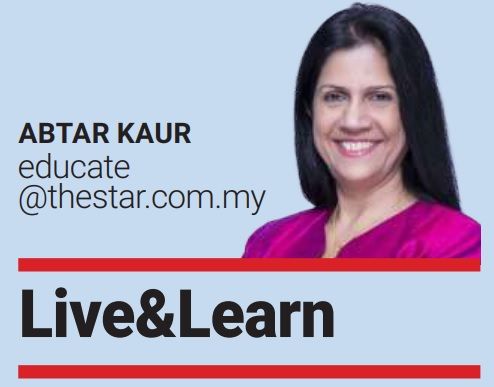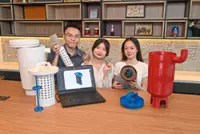For decades, the pinnacle of a higher education programme often boiled down to two things: a hefty term paper and an anxiety-inducing final exam held in a large and imposing hall.
Now, a technological revolution is brewing on campuses across the globe, fuelled by the meteoric rise of generative artificial intelligence (Gen-AI).
Far from the multiple-choice quizzes on online learning platforms, Gen-AI provides instructors with alternative ways of assessment, capable of complex thought, language generation, and creative problem-solving. Soon, this technology may redefine how academics measure student mastery.Beyond essays, exams
Imagine a civil engineering student constructing a virtual bridge, not with digital modelling tools, but within an immersive virtual reality (VR) environment. As she perfects her design, integrated AI analyses the structure’s viability, simulating earthquakes, extreme heat, and hurricane-force winds.
No longer a static blueprint, the student’s creation is tested in real time, offering immediate, detailed feedback. This VR assessment goes beyond theoretical knowledge, demonstrating practical problem-solving in a near real-world scenario.
AI’s continuous assessment potential extends beyond simulations. Gen-AI algorithms can “watch” as a biology student participates in online discussions, analysing their contributions, and questioning the connections they draw between concepts.
Or, as a computer science student submits code, the AI system monitors, pinpointing areas for improvement and identifying patterns in how the student tackles problems.
In contrast to a single exam score, this offers a dynamic picture of how learning occurs over time, catching potential roadblocks early and facilitating more targeted personalised support.
Of course, collaborative work is essential in preparing students for a modern workplace. In business and marketing courses, AI could analyse group project dynamics. It could evaluate a final presentation or proposal and monitor how well teams collaborate, identify innovative thinking, and assess the integration of classroom theory into real-industry case studies.
The future of assessments transcends pen-and-paper exams. These real-time, customised assessments could revolutionise our understanding of the learning process, offering more targeted support and facilitating deeper development of essential skills – ultimately creating a more adaptable and innovative generation of graduates.
Navigating ethical waters
Like any tool, AI is only as good as its implementation. Colleges and universities must tread carefully to ensure that integration benefits all students.
First and foremost is minimising bias within AI systems. If assessment algorithms learn from past student data containing inherent biases, this could become encoded in the grading process, unfairly impacting certain groups or writing styles. Rigorous testing and transparent ethical guidelines are essential in preventing AI from perpetuating existing inequalities.
Educators, the bedrock of the educational experience, cannot be left behind in this transition. Professional development will be vital in training faculty to harness AI-powered tools for diverse needs and learning styles. Additionally, clear policies outlining their role in upholding academic integrity are necessary as students gain access to powerful text-generating AI tools that could tempt some towards shortcuts.
Beyond practical challenges, AI raises profound questions about the very purpose of assessment. Should educators shift their focus if AI programmes can excel at rote memorisation and elemental essay composition? Emphasising critical thinking, cross-disciplinary connection-making, and ethical innovation – skills AI still struggles to replicate – could become the hallmark of a student excelling in an AI-infused world.
Integrating AI into education demands thoughtful action to ensure equity and uphold the purpose of learning. Preventing bias in AI grading algorithms is crucial to avoid perpetuating existing inequalities. Educators must be empowered with training and clear guidelines to use AI tools ethically, adapting them to diverse student needs and maintaining academic integrity.
Most importantly, AI implementation should spark a reevaluation of the assessment itself – shouldn’t it emphasise the skills that AI struggles to master, like critical thinking, interdisciplinary connections, and ethical problem-solving?
The potential
Imagine a system where learning materials and practice quizzes adapt to each student’s strengths and weaknesses in real time. This tailored approach, enabled by AI, could offer the kind of individual attention even the most dedicated professor struggles to provide in a large lecture hall.
Automated and detailed feedback on grammar and citation in essays could help students hone their technical writing skills, freeing up precious instructor time for in-depth ideas and critical argumentation analysis.
AI might even enhance peer review. Tools could guide students’ comments towards constructiveness while allowing students to self-assess their work before submission, encouraging better learning habits.
AI technology has the potential to revolutionise education through personalised learning. Adaptive programmes could react to student performance, making learning more efficient and mirroring the one-on-one support even dedicated teachers struggle to provide consistently.
This isn’t just about test scores – AI could free up instructor time by automating feedback on technical writing areas, allowing for a deeper focus on critical thinking and idea development.
Even the peer review process could be enhanced, using AI to guide students towards giving constructive feedback and offering opportunities for self-reflection to instil better study habits.
A leap forward
Gen-AI represents a significant step forward in the evolution of assessments in higher education. It is likely to continue evolving, offering even more sophisticated tools for assessment.
This evolution will likely include better adaptability to different learning styles and more nuanced assessment methods. It promises a more personalised, efficient and diverse assessment landscape, aligned with the needs of the modern educational environment.
However, its integration must be balanced and responsible, complementing traditional methods to ensure a holistic and fair educational experience. This future also calls for ongoing research and development to refine these tools and address the challenges identified.
Prof Dr Abtar Kaur Darshan Singh is a professor of innovative digital learning, the director of Digital Learning Hub, and the Unesco chair – Use of Innovative Technologies to Enhance Quality of Teaching – at the Asia Pacific University of Technology & Innovation (APU). She obtained a Master of Science in Instructional Design, Development and Evaluation degree from Syracuse University in the United States, and a PhD in Web-Based Learning from Universiti Malaya. Prof Abtar did her post-doctoral research (Fulbright) at Indiana University, US. The views expressed here are the writer’s own.






